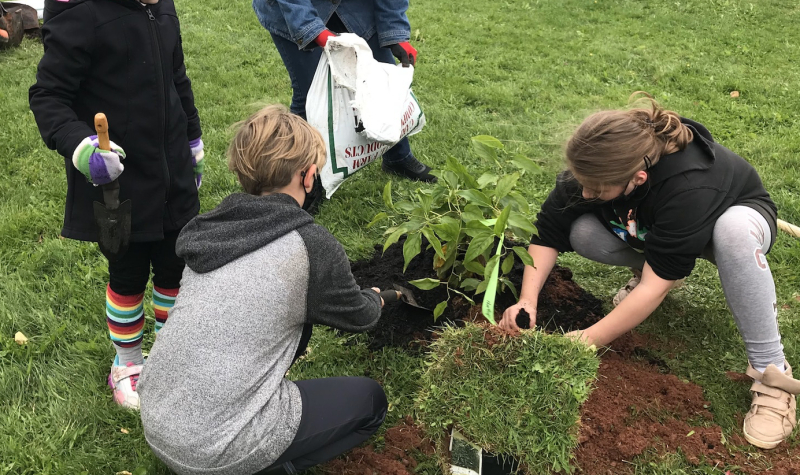The UpLift Partnership in Nova Scotia is making an effort to create healthier school environments.
The partnership works with elementary and junior high schools to implement students’ plans for healthy changes. The UpLift Partnership published some of their recently finished school projects on Aug. 9.
Some of the examples shared were a ‘Tranquility Garden’ that was put in at a school in Northport, N.S. This garden provides students a calming retreat to connect with nature.
“It was actually sparked by a young student there who was experiencing some anxiety issues,” Sara Kirk, the academic co-lead of the UpLift Partnership and professor of health and human performance at Dalhousie University says
Another example was from a school in Colchester, N.S. that built an outdoor shelter with a stove. The shelter serves as a place for learning, cooking by the fire and building outdoor education skills.
The UpLift Partnership is part of a global model coined by the World Health Organization as Health Promoting Schools.
“So with an $8 million investment, what we're trying to do is catalyze the health promoting schools model, but bring the voices of youth firmly into that work,” Kirk says.
The funding from the Public Health Agency of Canada and other private sector funding goes towards creating the healthy living projects at schools across the province.
The students are given $5,000 from that funding to put their plans into action. Giving students the responsibility and leadership helps teach valuable skills like budgeting and patience, Kirk says.
“They learned all sorts of different skills that are not necessarily taught in the curriculum,” Kirk says.
The partnership began in 2019 but Kirk has been researching creating healthier environments for students for 15 years.
“One of the things that we found was the children who have excess adiposity have higher health care costs than their normal weight peers or normal adiposity peers,” Kirk says.
The funding is set to run out in August 2024.
“The big thing we were looking for now is we want this to be sustained, Kirk says. “The outcomes that we're getting right now are important to consider for preventing ill health in later life.”
Listen to the story below:


